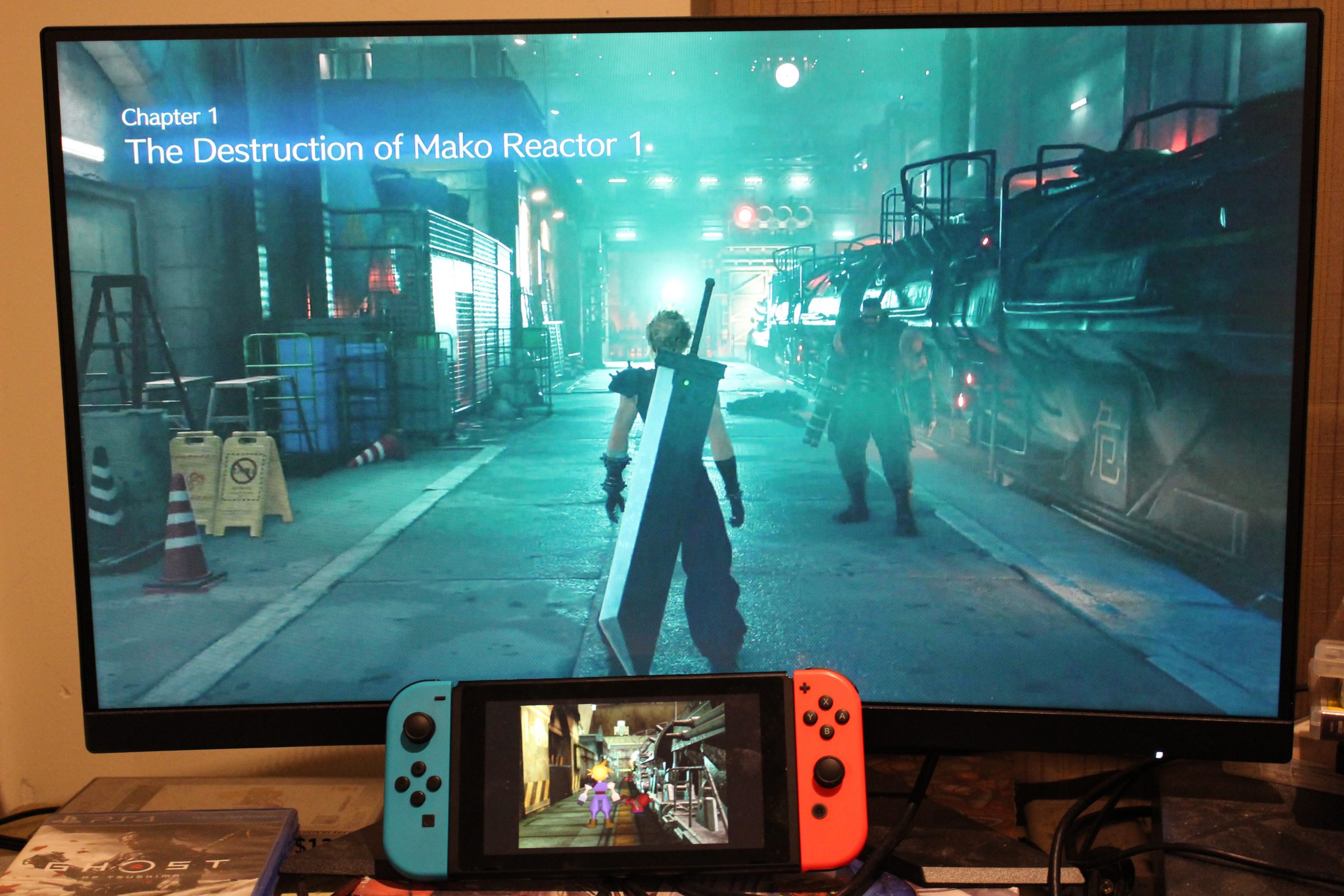One of the latest trends taking over the video game industry is the ‘remake’, where developers take an older game and update it with modern graphics, mechanics and fixes.
On paper it’s a great idea, but is it a sure-fire way to engineer a hit game?
There has been no drought when it comes to remakes and remasters over the past few years. Resident Evil 3, Final Fantasy 7, and even Yoko Taros cult classic NieR: Replicant have got facelifts.
But the question on every gamer’s mind when a new beautified version of a game is dropped is ‘are these remakes worth it?’ and ‘what will happen to remasters?’
“Remakes are a hundred percent a chance to take a step back in time to an age where we were sitting in front of our old CRT TVs experiencing what was then such a revelation in videogames,” said The Beta Network‘s Samuel Incz.
“These remakes are an opportunity to get that same feeling again.”
This may seem like a recent trend, but developers have been updating and reworking games since the dawn of video game technology. Hideo Kojima had reworked Metal Gear Solid with his release Metal Gear Solid: Twin Snakes on the Gamecube, but even before that, versions of Doom had been remade several times and even Pac-Man had seen several facelifts and changes when being released onto consoles.
Dr. Lauren Rosewarne, author of Why We Remake: The Politics, Economics and Emotions of Film and TV Remakes, says there are many reasons companies remake games.
“Old titles have established reputations,” she said. “People know the name and the characters so companies don’t need to market an entirely new concept.”
“Nostalgia is also a central reason. Remade games give audiences the opportunity to revisit updated titles from their youth. New technology gives developers the opportunity to reimagine old titles.”
“Also, remaking a game can be a cheaper option given that the company likely owns all the rights if they were the producers of the earlier title.”
Remakes, however, still remain a controversial topic among gamers. Twin Snakes gained a lot of criticism for becoming too easy, with the addition of modern mechanics allowing stealth options that were not realised in the previous game.
Doom’s PS1 release divided players for replacing its action-packed, in-your-face atmosphere with something more creepy and ambient. And Crash Bandicoot’s N. Sane Trilogy sparked debate of whether it was a remaster or a remake.
Gameslikefinder.com CEO Samuel Frankin says games change substantially, often for convenience, and this fundamentally changes what the titles are about.
“In the original Call of Duty you had a traditional health system and had to pick up health packs,” he said. “You don’t have that in modern shooters. That mechanic has just died away completely. People aren’t interested in that”
“They’ve gone from pick up health packs to having to go under cover after being hit”.
Beloved Kingdom Hearts director and veteran Square Enix character designer Tetsuya Nomura was recently given the task to remake Final Fantasy 7, often considered to be one of the best games ever made.
Controversy erupted when it was announced Nomura would be completely rebuilding the combat system. Many fans of the Final Fantasy series were worried the remake would follow in the footsteps of Twin Snakes and the game would suffer from the change rather than benefit from it.
“A lot of the games that we remember fondly have aged significantly and are not as enjoyable to play now as they were back then,” Incze said. “The idea of a remake allows us to experience those same joys and nostalgia with the added benefit of controls that are significantly less clunky and feel right to use in this modern era.”
“(Remakes) should remove that frustration of this was made in a time where this is possible, but now this is possible and a game can live up to its full potential,” adds Franklin.
It is quite easy to dismiss this growing trend as a simple cash-grab, but many commentators believe there is more to it than that.
“The industry isn’t a charity,” said Dr Rosewarne. “Money making is absolutely central. But commercial things can also be creative and artistic.”
These comments are only supported by the near-universal embrace of Demon’s Souls and Final Fantasy 7‘s remakes among critics, casual players and hardcore gamers.
Remakes do provide a new challenge for developers: How do you capture the heart and soul of an old game while making it modern? Can you update something without destroying the original appeal and feel of the game?
And what about consumers? How a game is reviewed and received is largely subjective, and varies a lot from game to game. And whatever you call it, if the aim is to improve a game where improvement was needed, and you can attract a larger audience.
“It can only mean good things, said Mr Franklin. “If that remake has success….they’re gonna feel more comfortable investing in it.”
“Which one would I pick up, and which one would I play? I think it would have to be a remake. Because with an older game theres so much frustration, and performance issues, and when you’re looking at it nostalgically you don’t remember all that.”


